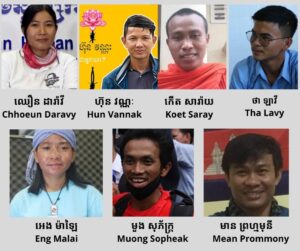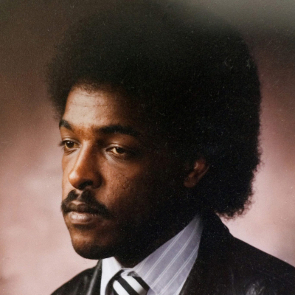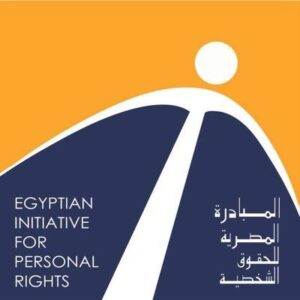The following is based on a communication sent by the UN Special Rapporteur on Human Rights Defenders and other UN experts to the Government of Rwanda on 3 April 2024. The communication remained confidential for 60 days before being made public, giving the Government time to reply. Regrettably, the Government did not reply within this timeframe. If a reply is received it will be posted on the UN Special Procedures communications database.
Since the communication was sent, judges ruled against Dieudonné Niyonsenga in the review of his trial on 29 March 2024 and upheld his 7-year sentence. The Special Rapporteur also heard disturbing news that Théoneste Nsengimana was allegedly placed in solitary confinement for two weeks, during which he was not allowed to receive family visits. He was not informed of the reason for this punishment. His wife was finally able to visit him on 15 June and alleged that his health had deteriorated due to food deprivation.
This is a shorter version of the original communication.
BACKGROUND
Topic: the criminal prosecution and detention of journalists and human rights defenders Mr. Théoneste Nsengimana and Mr. Dieudonné Niyonsenga and opposition politician Mr. Théophile Ntirutwa.
Mr. Théoneste Nsengimana is a journalist and human rights defender who runs the YouTube Channel Umubavu TV. Umubavu Online TV publishes reporting and commentary on Rwandan politics, including interviews with opposition figures.
Mr. Dieudonné Niyonsenga, also known as “Cyuma Hassan”, is a human rights defender and owner of Ishema TV, a YouTube channel that critically covers a wide range of topics, including local politics, culture, and human rights. Ishema TV is since November 2022 no longer available online.
Mr. Théophile Ntirutwa is an opposition politician and former member of the unregistered Dalfa-Umurinzi opposition party. He is also a vocal critic of the current Rwandan Government.
ALLEGATIONS
The case of Mr. Théoneste Nsengimana
In April 2020, Mr. Nsengimana was reportedly arrested and detained for several weeks on allegations of fraud, in a broader context of arrests of various journalists reporting critically on the impact of COVID-19 guidelines on vulnerable populations. In May 2020, the Kicukiro District Court in Kigali ordered Mr. Nsengimana’s release from pretrial detention due to the prosecution’s lack of evidence against him, and the charges were eventually dropped. After his release, Mr. Nsengimana’s YouTube channel hosted critical discussions on public affairs.
On 13 October 2021, Mr. Nsengimana was allegedly arrested as part of what sources describe to have been a crackdown on opponents and critics connected to an event called “Ingabire Day”, which was due to take place on 14 October 2021. The event was organised by the unregistered opposition party Dalfa-Umurinzi to discuss alleged restrictions to political expressions in Rwanda. Mr. Nsengimana intended to cover the event and host a discussion on his YouTube channel with the Dalfa-Umurinzi party leader.
Mr. Nsengimana was reportedly charged with “membership in a criminal group”, which carries a maximum prison term of 10 years under Rwanda’s Penal Code; “dissemination of false information or propaganda with intent to cause a hostile international opinion against Rwanda’s Government”, also punishable by up to 10 years; “inciting unrest”, which carries up to 15 years; and “spreading rumours”, which carries up to five years in prison and a fine of up to 3 million Rwandan francs (US$3,000) under Rwanda’s cybercrimes law. The journalist currently remains in pre-trial detention in Mageragere prison in Kigali (officially Nyarugenge Correctional Facility).
In a hearing on 9 November 2021, the Kicukiro District Court denied Mr. Nsengimana and seven of his co-defendants bail and ordered them to remain in pre-trial detention in Mageragere prison. On 16 March 2022, the prosecution requested that Mr. Nsengimana be sentenced to 10 years in prison upon conviction.
The case of Mr. Dieudonné Niyonsenga
On 15 April 2020, Mr. Niyonsenga and one of his colleagues at Ishema TV were reportedly arrested by the Rwandan Investigation Bureau (RBI) after reporting on the impact of COVID-19 guidelines on vulnerable populations, and were accused of forgery, impersonating journalists and hindering public works. In information published on social media, the RBI claims that Mr. Niyonsenga resisted orders to go home, after he had argued that he was a journalist and allowed to move during the lockdown and accused him of forging press cards.
During the trial, prosecutors claimed that Mr. Niyonsenga had forged press cards for himself and his colleague, saying that only the Rwanda Media Commission (RMC), a statutory regulator, could issue such cards. Prosecutors also claimed that because he did not have an accreditation from the RMC and the proper journalistic qualifications, Mr. Niyonsenga was impersonating a journalist.
On 12 March 2021, the Gasabo Intermediate Court in Kigali acquitted Mr. Niyonsenga and his colleague after they had spent almost a year in pre-trial detention. After his release, Mr. Niyonsenga gave several interviews on YouTube describing his treatment in detention and continued to report on issues such as alleged abuses by the military. In one interview, the journalist said he was held in multiple locations and told to confess to working with the Rwanda National Congress (RNC).
On 11 November 2021, the prosecution appealed the verdict and Mr. Niyonsenga was re-arrested. The High Court in Kigali reportedly reversed his acquittal, fined him 5 million Rwandan francs (US$4,900) and sentenced him to seven years in prison, the maximum prison term for forgery.
Mr. Niyonsenga challenged his conviction while he continued to be held in detention in Mageragere prison. On 10 January 2022, Mr. Niyonsenga reportedly told the court that he was being mistreated and held in a small dark cell and asked for medical attention and for the court to investigate his conditions. Both requests were reportedly ignored.
On 18 March 2022, the appeals court found Mr. Niyonsenga guilty of forgery, impersonation, hindering public works, and “humiliation of national authorities and persons in charge of public service.” The last charge, which was added during the appeal, is no longer a criminal offense in Rwanda. It was struck from the 2018 Penal Code by the Supreme Court in 2019. A second appeal’s verdict maintained his seven-year sentence but overturned his conviction for humiliation of national authorities.
In April 2022, it was reported that Mr. Niyonsenga was not being given sufficient or adequate food, access to medication, or money sent by friends and relatives.
On 10 August 2023, it was reported that Mr. Niyonsenga was being held in a basement without access to natural light, and that he was in very poor health. As of 10 November 2023, reports indicated that Mr. Niyonsenga was no longer being subjected to beatings but remained in ill health and was only allowed out of his cell for 30 minutes per day.
On 10 January 2024, Mr. Niyonsenga appeared in a hearing as part of the review of his trial. The journalist and human rights defender reportedly appeared weak and visibly wounded. During the trial, he denounced the alleged torture he was subjected to while in detention, including being allegedly held in solitary confinement in a damp cell and subjected to daily beatings, which are impairing his hearing and eyesight. Due to the journalist’s state, the trial was postponed until 6 February 2024. At this hearing, Mr. Niyonsenga’s lawyer reportedly requested that his client’s trial be presided over by three judges, instead of one, and the court adjourned to review this request. Reportedly, no investigation has been ordered into the allegations of torture of Mr. Niyonsenga in detention.
The case of Mr. Théophile Ntirutwa
In September 2017, Mr. Ntirutwa was reportedly arrested without charge and forcibly disappeared for 17 days before being transferred to prison. On 23 January 2020, after two years of pre-trial detention, Mr. Ntirutwa was put on trial alongside seven other members of the Dalfa-Umurinzi party on charges including complicity in forming or joining an irregular armed force. Mr. Ntirutwa was subsequently acquitted and released. Upon his release, he spoke out of his alleged ill-treatment and torture while in pretrial detention in interviews to local YouTube channels.
On 11 May 2020, Mr. Ntirutwa was reportedly arrested following a violent incident at his shop in Rwamagana District in which one man was stabbed to death. On 18 May 2020, the politician was charged with offenses including formation of a criminal association, murder, theft, and inciting uprising and “spreading false information or harmful propaganda with intent to cause a hostile international opinion against [the] Rwanda Government”.
On 16 December 2022, after over two and a half years in pre-trial detention, Mr. Ntirutwa was acquitted of all charges expect “spreading false information with the intent of creating a hostile opinion of Rwanda abroad”. Mr. Ntirutwa was reportedly convicted of this charge on the basis of phone calls he made to his party’s leader, and a journalist, in which he said that the incident was an assassination attempt by armed police and military against him. The High Court’s Rwamagana chamber sentenced Mr. Ntirutwa to seven years’ imprisonment. He is serving this sentence in Rubavu prison.
CONCERNS
In the communication, we stress our concern at the criminal prosecution and detention of Mr. Nsengimana and Mr. Niyonsenga which appear to be directly related to their work as independent journalists and human rights defenders, and Mr. Ntirutwa as an opposition politician, who are outspoken and critical of the security forces and the Government and who express views on sensitive issues such as allegations of human rights abuses.
Targeting the media creates a hostile environment for journalists, who risk prosecution and imprisonment for their critical, independent reporting, thus contributes to self-censorship. With respect to the arrest of opposition actors, we remind the Rwandan Government that freedom of expression is essential to democracy and to creating a conducive environment for free and fair elections. In this context, we are concerned that as the 2024 election campaign season is approaching, we receive reports indicating that the authorities are cracking down and prosecuting opposition members, journalists, and commentators on the basis of their speech and opinions.
Further, we are deeply concerned at the alleged ill-treatment of Mr. Niyonsenga while in detention at Mageragere prison. We express profound concern about the reported absence of official investigations into the allegations of torture, physical abuse and ill-treatment specifically against Mr. Niyonsenga.
Finally, since prison authorities have been accused of intercepting privileged communications between him and his lawyer, we remind the Rwandan Government that under international law, all communications and consultations between lawyers and their clients within their professional relationship are confidential and this right must be protected.



